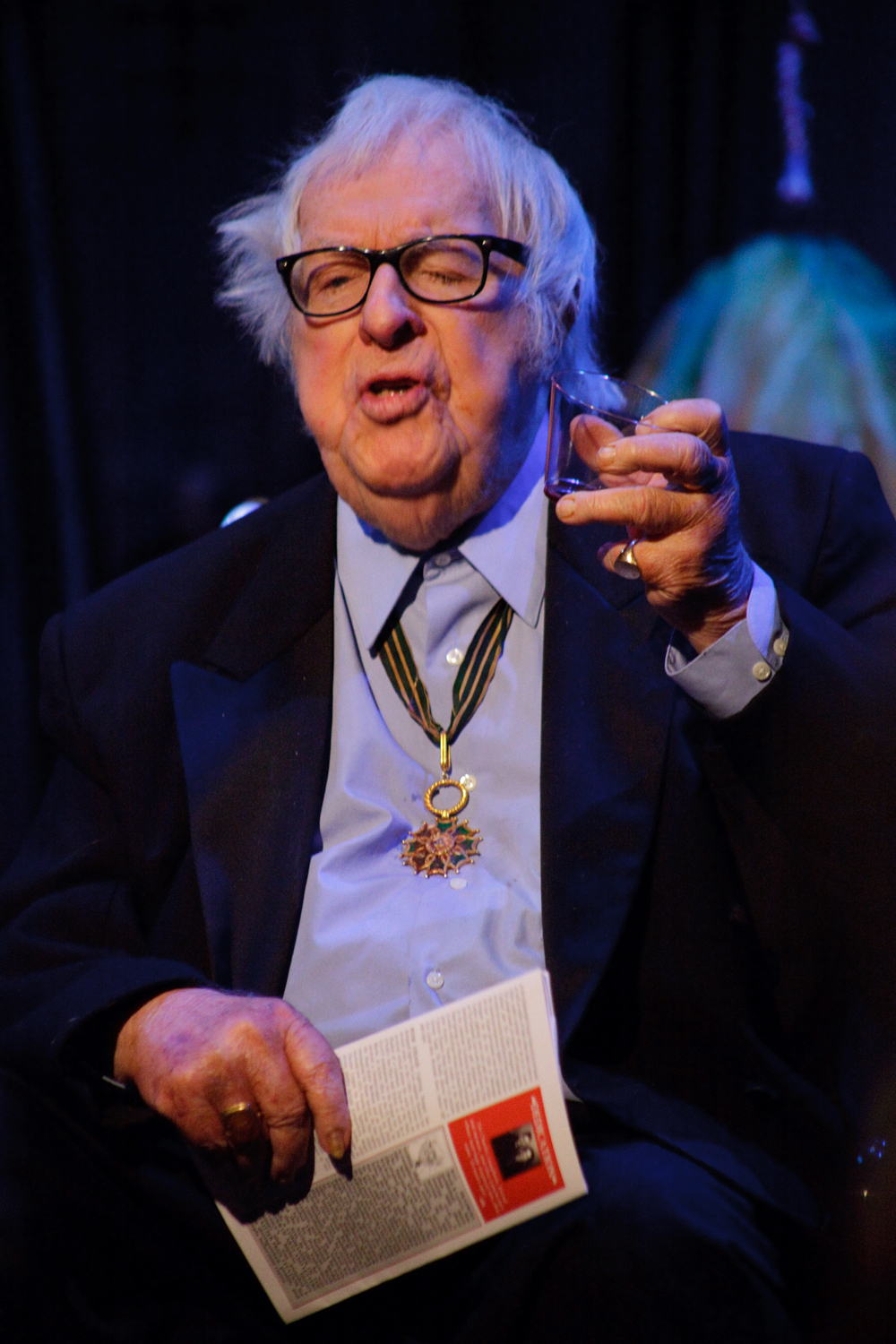Ray Bradbury's Death Mourned by Scientists and Sci-Fi Luminaries

Science fiction icon Ray Bradbury left an indelible stamp on both science and fiction with his work, say authors and researchers responding to news of the icon's death yesterday (June 5).
The writer, best known for "The Martian Chronicles" (1950) and "Fahrenheit 451" (1953), which both predicted dystopian futures for humanity, died in California at age 91. He came of age before the era of human space travel and lived to see men walk on the moon and landers touch down on Mars.
Science fiction writers say his visions for the future forever changed the landscape of what could be imagined.
"He was a great science fiction writer, a sweet man beloved in the science fiction community, and an inspirational figure to many people," Kim Stanley Robinson, author of the "Red Mars" trilogy, told SPACE.com. "He brought a lot of emotion into science fiction, and had an intense love of reading, which he ceaselessly conveyed to others. His best short stories will have a permanent place in the science fiction canon and in American literature."
Many cite the impact of Bradbury's work on young people as one of his lasting legacies. [5 Great Ray Bradbury Quotes About Death]
"When I was teaching English and trying to get kids passionate about reading, the most effective weapon I had was 'The Martian Chronicles,'" said Jack McDevitt, author of the Nebula award-winning "Seeker."
McDevitt recalled staging reenactments of stories from the collection in the classroom, and then cutting them off midway. "I announced that if anyone wanted to find out what happens next, the book was available in the bookstore. It worked beautifully," McDevitt said.
Breaking space news, the latest updates on rocket launches, skywatching events and more!
Scientists recalled being equally influenced by Bradbury's worlds.
"I was a product of the Apollo days (Apollo 11 happened the summer before I entered 11th grade), when spaceflight was still very much the realm of the unknown," said Jim Zimbelman, Mars researcher at the Center for Earth and Planetary Studies at the Smithsonian Institution's National Air and Space Museum. "Books by Bradbury (plus Asimov, Clarke, and Heinlein, to name some of the other 'biggies') stretched my growing mind to think beyond just the obvious or the 'likely possible,' and to embrace what possibly might be 'out there.'"
Among his celebrated qualities, Bradbury's originality and inventiveness especially stood out.
"Along with Clarke and Asimov, he was one of the great imaginators of the 20th century," said planetary scientist Peter Smith of the University of Arizona. "He drove my imagination, already well developed, into new realms. I imagined that if we could ever get to Mars we would evolve to become the new Martians."
Chris Carr, an engineer and research scientist at MIT in Cambridge, Mass., agreed.
"I mourn the passing of that wild imagination: it is what will make our future in many ways more magical than our fanciful ideas of the unknown," Carr said.
Many more luminaries chimed in to mourn Bradbury over Twitter. Here's a small sampling:
Neil deGrasse Tyson, director of the Hayden Planetarium at the American Museum of Natural History in New York (@neiltyson): Creative imaginative visionary. A dreamer, like so many of the best science fiction authors. Ray Bradbury (1920-2012), R I P
Andrew Chaikin, space historian (@andrewchaikin): Ray Bradbury, the Poet Laureate of space exploration, has died at 91. His spirit will continue to guide us into the universe forever.
Nichelle Nichols, actress who played Uhura on the original "Star Trek" TV series (@RealNichelle): In honor of Ray Bradbury's passing why not take time out to read one of his marvelous stories? Such a SciFi Icon! A true genius!
Phil Plait, astronomer and author of the "Bad Astronomy" blog (@BadAstronomer): The transit of Venus and Ray Bradbury's death are reminders of the transience of beauty, and humanity in exploration.
LeVar Burton, actor who played Geordi La Forge in "Star Trek: The Next Generation" (@levarburton): Ray Bradbury, may flocks of Angels guide thee to thy rest! #oneofthegreats
SPACE.com senior writer Mike Wall contributed to this report. You can follow SPACE.com assistant managing editor Clara Moskowitz on Twitter @ClaraMoskowitz. Follow SPACE.com for the latest in space science and exploration news on Twitter @Spacedotcom and on Facebook.
Join our Space Forums to keep talking space on the latest missions, night sky and more! And if you have a news tip, correction or comment, let us know at: community@space.com.

Clara Moskowitz is a science and space writer who joined the Space.com team in 2008 and served as Assistant Managing Editor from 2011 to 2013. Clara has a bachelor's degree in astronomy and physics from Wesleyan University, and a graduate certificate in science writing from the University of California, Santa Cruz. She covers everything from astronomy to human spaceflight and once aced a NASTAR suborbital spaceflight training program for space missions. Clara is currently Associate Editor of Scientific American. To see her latest project is, follow Clara on Twitter.
